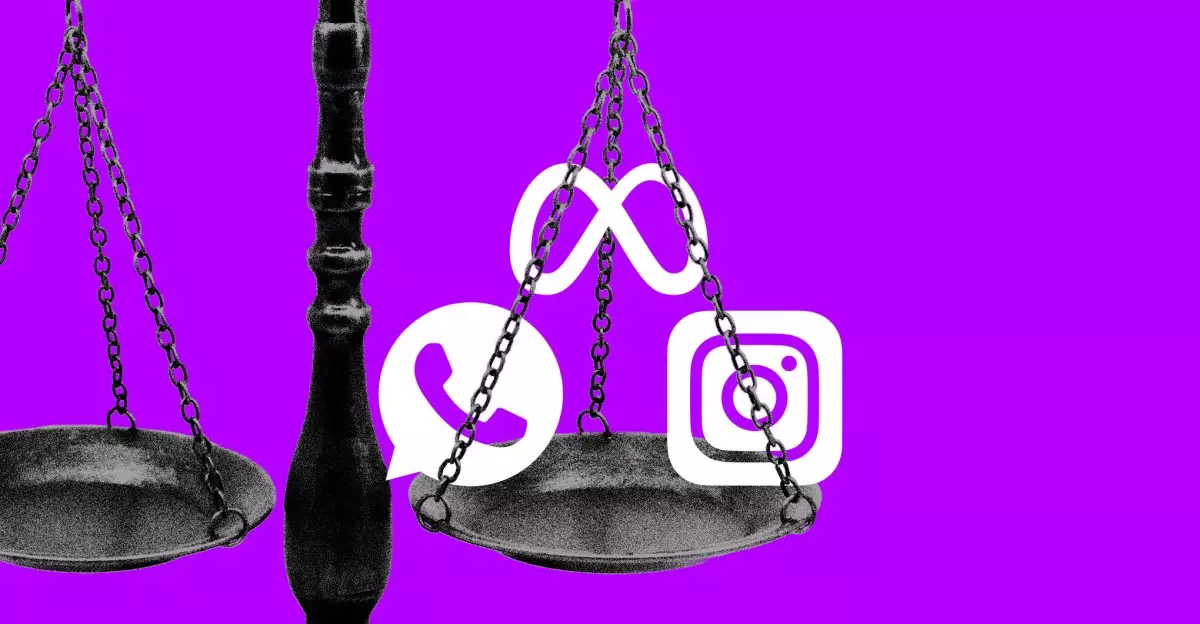The recent FTC v. Meta trial has thrust Mark Zuckerberg back into the limelight, stirring up debate about the motives behind his acquisition of Instagram and WhatsApp. The trial, which began on April 14th, seeks to challenge the narrative that Zuckerberg’s purchasing strategy was not merely about expansion or enhancement, but rather about obliteration. Zuckerberg’s testimony presented not just a defense against these claims but also revealed the thought processes and business acumen behind the multi-billion dollar deals that played pivotal roles in the evolution of social media.
When asked by Meta’s lead attorney if he would pay $19 billion for WhatsApp again, Zuckerberg’s immediate response was both confident and revealing: “I’d do it again.” This inside glimpse into his mindset framed the narrative of his testimony. The implications of such a significant investment stretch beyond mere numbers; it illustrates a forward-thinking vision in an industry filled with uncertainty and potential threats.
Transitioning to the Private Sphere
At its core, Zuckerberg’s defense centers around a significant transformation in digital communication during the last decade. He articulated a strong belief that there was a natural evolution occurring where users were moving away from public interactions on platforms such as Facebook and seeking private conversing formats. His assertion emphasizes the changing tide of user preferences and positions WhatsApp as a key asset in adapting to that shift rather than as a competitor he sought to extinguish.
The FTC’s argument posits that Zuckerberg viewed WhatsApp as a threatening contender in the messaging space, fearing it could evolve into a social media powerhouse akin to Facebook. However, Zuckerberg argued against this by reflecting on his first encounters with WhatsApp’s co-founders, expressing skepticism about their ambition. Their disdain for the social and advertising world reportedly reinforced his belief that the likelihood of WhatsApp evolving into a competitor was “extremely unlikely.” This contention raises important questions about the nature of competition in digital markets and the metrics by which one judges a threat.
Assets or Adversaries?
Throughout his lengthy testimony, Zuckerberg painted his acquisitions as strategic moves aimed at cultivating growth and innovation rather than stifling potential competitors. He underscored that the early stages of WhatsApp were characterized by limited aspirations, as co-founders Jan Koum and Brian Acton were not looking to expand their application into new areas. This perspective highlights a critical aspect of entrepreneurship—the necessity for resources, support, and strategic vision to foster success.
Zuckerberg’s claims that he pushed WhatsApp to incorporate more features, including social connectivity tools like Stories, indicate a proactive approach to scaling the platform rather than a malicious intent to eliminate competition. He made it clear that these initiatives were not to belittle WhatsApp’s capability but to utilize its existing framework to sustain a robust communication channel reflective of modern user needs.
Leveraging Competition and Cooperation
The interplay of competition and cooperation also arose during Zuckerberg’s testimony regarding his relationship with tech giants Apple and Google. He identified their app stores as essential conduits for reaching users, expressing concerns about his reliance on these companies for distribution. This perspective elucidates a more complex aspect of his acquisitions; they were not only aimed at expanding Meta’s reach but also at forming a buffer against potential disruptions from larger tech entities.
His depiction of both WhatsApp and Instagram as leveraging tools rather than threats contested the FTC’s narrative. By acquiring these platforms, Zuckerberg was seeking not only to solidify Meta’s position in the market but also to create a more diversified ecosystem capable of weathering external pressures. He candidly admitted uncertainty over how much purchasing WhatsApp improved his standing in negotiations with Apple and Google, which speaks to the unpredictable nature of strategic acquisitions.
Outcomes and Unexpected Successes
Zuckerberg’s assertions that Instagram and WhatsApp have surpassed initial projections emphasize a result-oriented analysis of his purchases. Internal documents reflected ambitions for Instagram to reach 100 million users soon after its acquisition, but Zuckerberg revealed the platform’s staggering growth to over 2 billion users. This success went far beyond his expectations, demonstrating the power of strategic investment combined with innovative leadership.
Interestingly, former Meta COO Sheryl Sandberg’s admission during the trial about underestimating the value of Instagram illustrates that even top executives can miscalculate the potential of digital platforms. “I think I was wrong,” she stated, emphasizing the unpredictability that often accompanies tech advancements and the inherent challenges in forecasting market dynamics.
Zuckerberg’s narrative throughout this trial paints a picture of not a monopolizing tyrant, but a visionary who, despite challenges and critiques, managed to create tools that connected billions. He shaped Meta’s trajectory by harnessing available resources, ensuring that these platforms became indispensable in the landscape of digital communication.


Leave a Reply